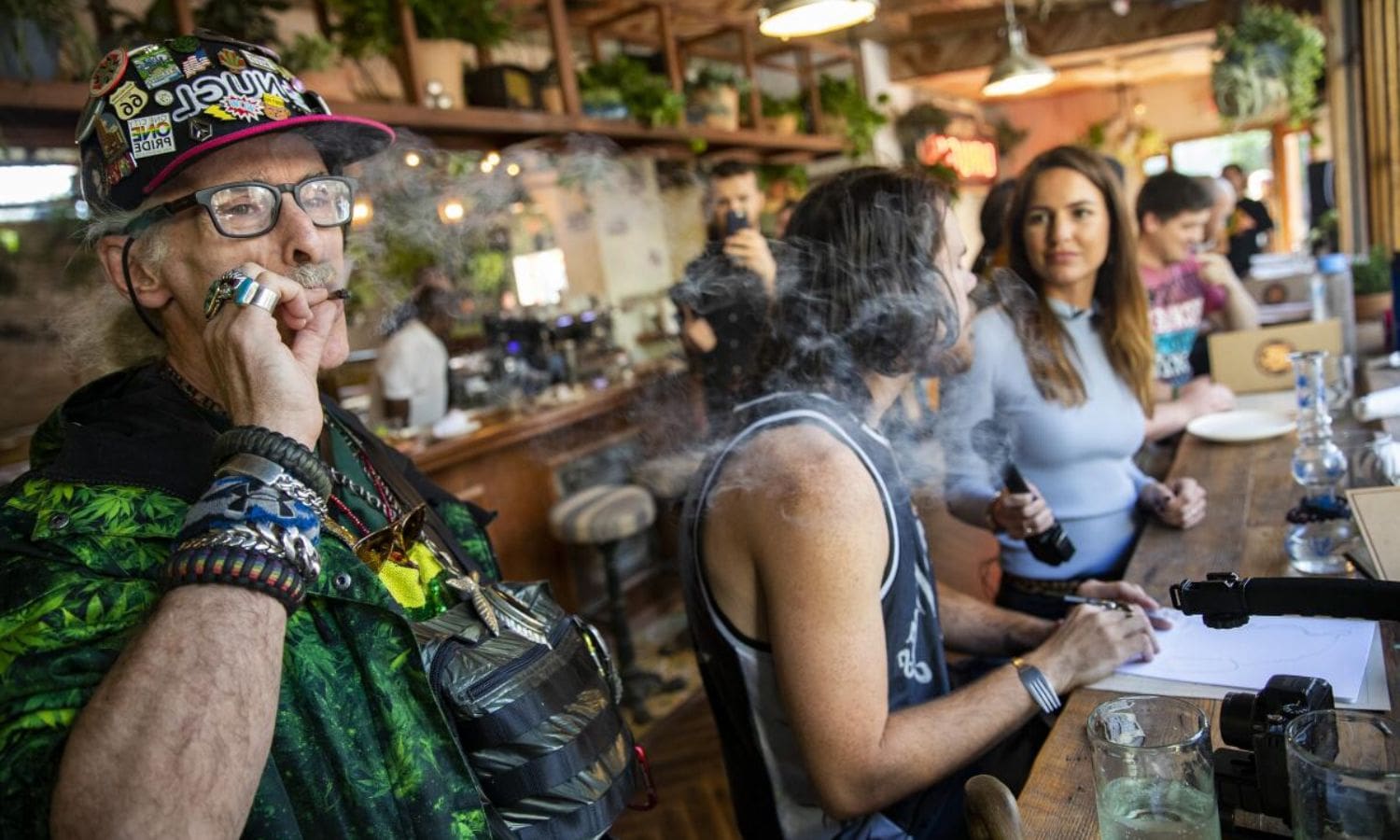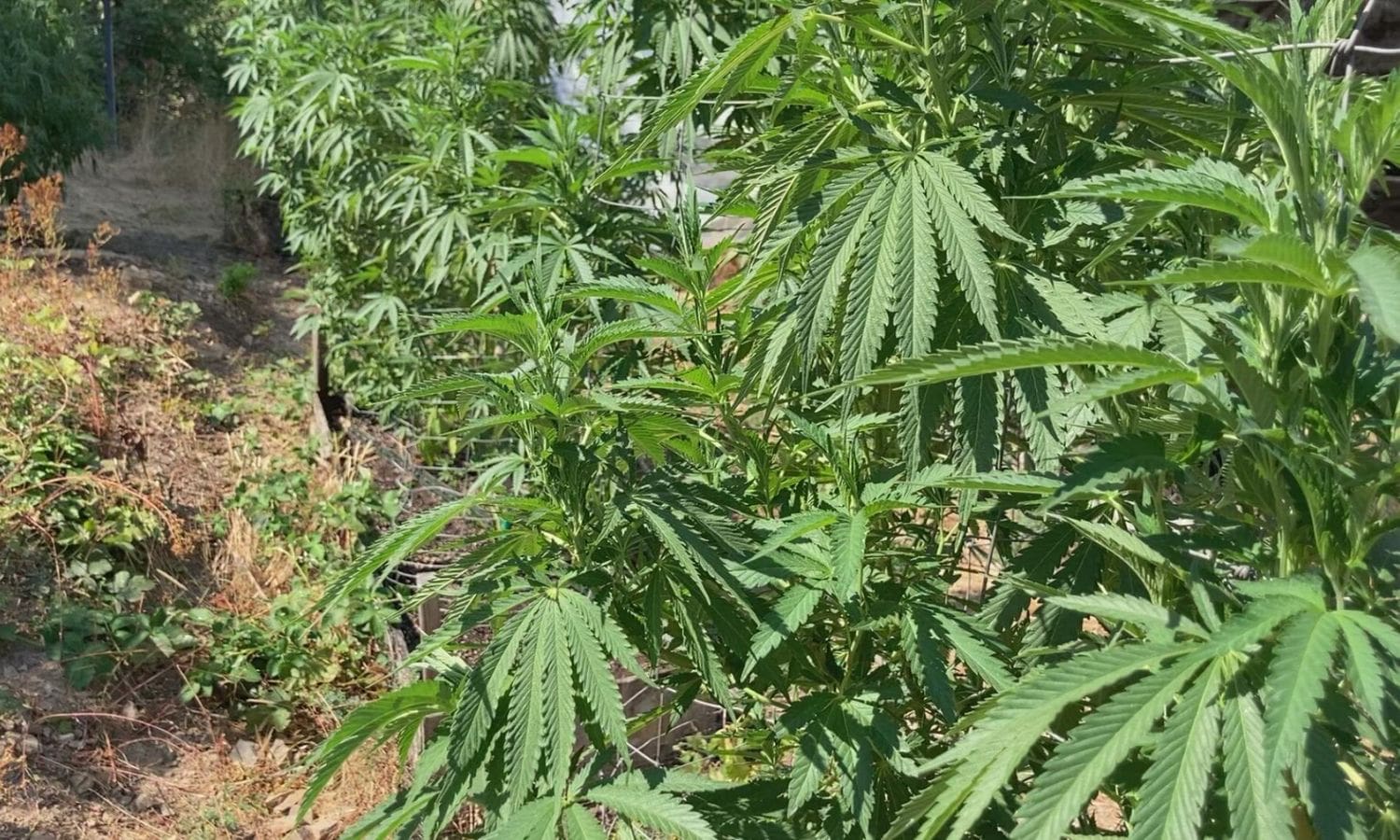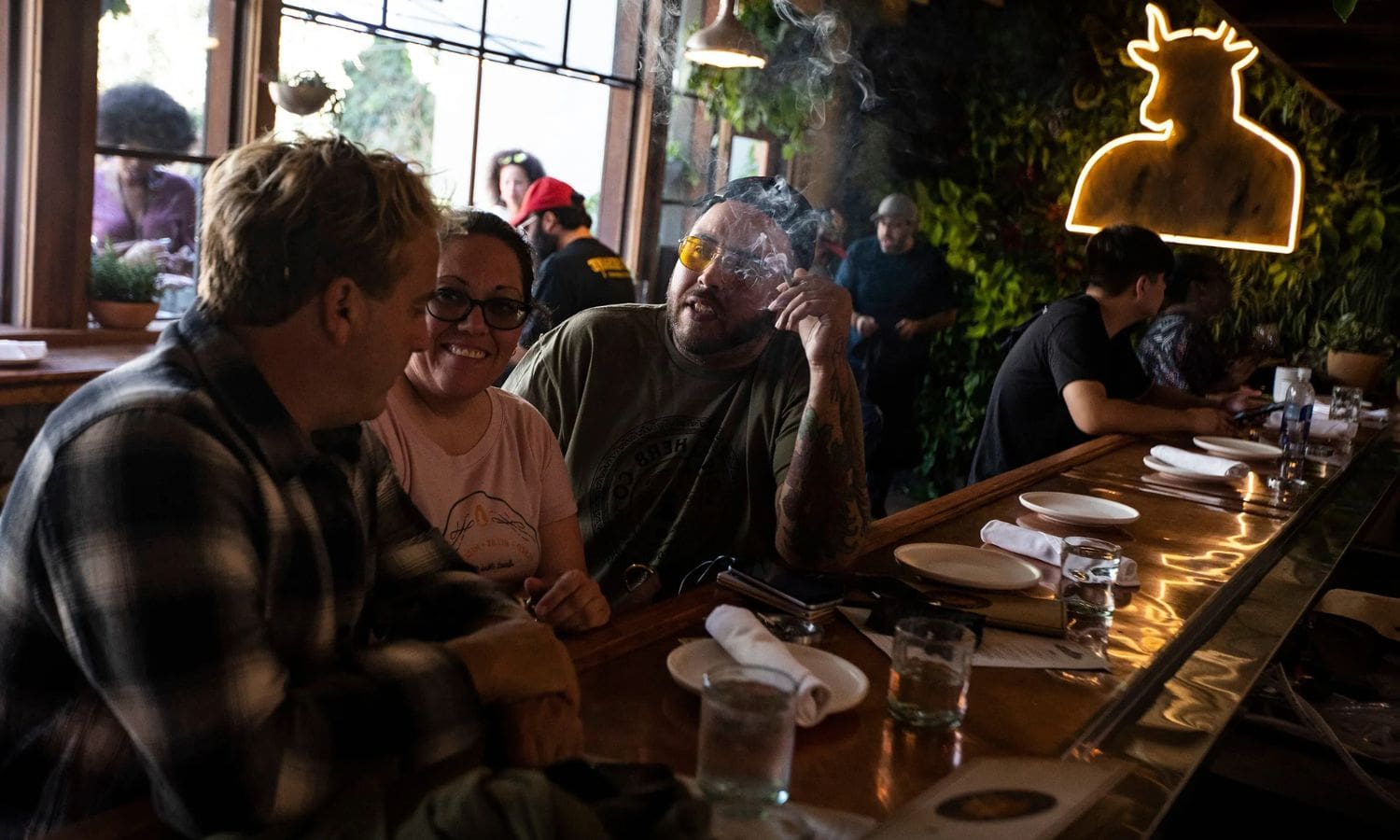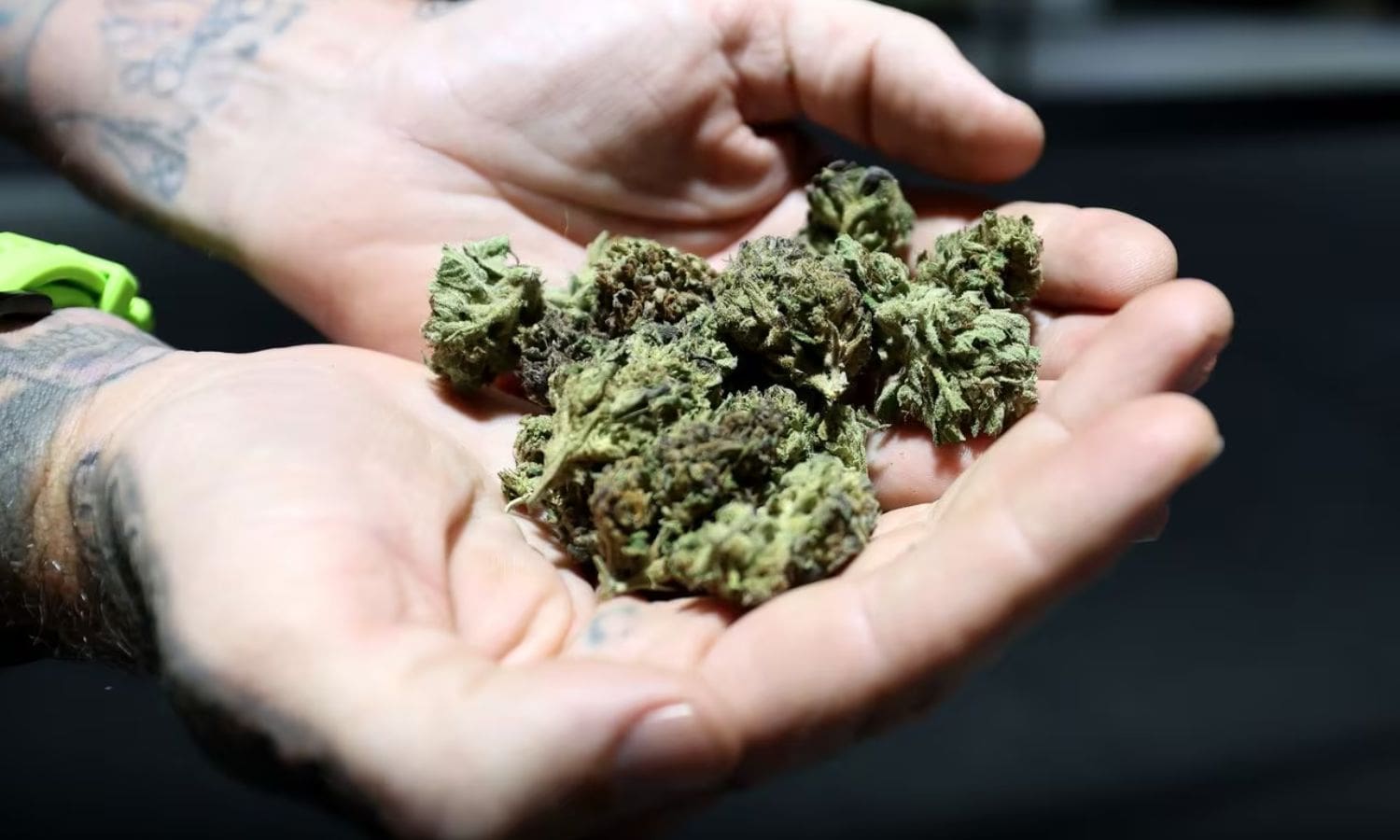Cannabis Cafe Legislation Returns: The return of AB 374 brings renewed hope for cannabis enthusiasts and entrepreneurs alike, as California Assembly seeks to introduce legislation for cannabis cafes.
Inspired by Amsterdam’s thriving cannabis culture, AB 374 aims to legalize the consumption of cannabis with food and beverages.
With a bipartisan history of support and collaborative efforts with Governor Newsom’s office and the Cannabis Control Department, this new legislation hopes to streamline operations and overcome regulatory challenges faced by cannabis lounges.
Key Takeaways Of Cannabis Cafe Legislation Returns
- AB 374 aims to legalize cannabis consumption with food and beverages, providing an opportunity for businesses in the cannabis industry to expand their offerings.
- The legislation seeks to establish regulated cannabis consumption venues inspired by Amsterdam’s successful cannabis cafés, creating a social and communal setting for cannabis consumers.
- Despite Governor Newsom’s previous veto, collaborative efforts are underway between Assemblymember Haney, Newsom’s office, and the California Department of Cannabis Control to address concerns and find common ground.
- The bill aims to address regulatory challenges faced by cannabis lounges, including restrictions on serving alcohol alongside cannabis, limited zoning options, and complex security and quality control requirements.


Cannabis Cafe Legislation Revived: AB 374 Returns to California Assembly
The reintroduction of AB 374 to the California Assembly marks the revival of cannabis café legislation in the state. Assemblymember Matt Haney’s announcement brings hope for the legalization of cannabis cafés, which would allow patrons to consume cannabis products on-site.
This bill, if passed, would provide a much-needed opportunity for businesses in the cannabis industry to expand their offerings and create a unique social experience for consumers. Proponents argue that cannabis cafés can serve as safe and regulated spaces for adults to consume cannabis, similar to how alcohol is enjoyed in bars and restaurants.
Additionally, the legalization of cannabis cafés could generate substantial tax revenue for the state and create new job opportunities. However, opponents express concerns about potential health and safety risks associated with on-site consumption.
The reintroduction of AB 374 presents an opportunity for policymakers to carefully consider the potential benefits and challenges of cannabis cafés in California.
Amsterdam-Inspired Venues: AB 374 Aims for Legal Cannabis Consumption with Food and Beverages
AB 374 aims to establish Amsterdam-inspired venues that allow for legal cannabis consumption alongside food and beverages. These venues would provide a unique and innovative experience for cannabis enthusiasts in California. Here are five key points to consider:
- The proposed legislation seeks to create a regulated framework for these venues, ensuring safety and responsible consumption.
- Amsterdam is well-known for its cannabis cafés, which have successfully operated for many years.
- These venues would provide a social and communal setting for cannabis consumers to enjoy their products in a controlled environment.
- By allowing cannabis consumption with food and beverages, AB 374 aims to create a more inclusive and enjoyable experience for patrons.
- If passed, this legislation could boost tourism and attract visitors from around the world who are interested in the cannabis culture.
Previous Bipartisan Support: AB 374’s Past Success and Governor Newsom’s Veto
Governor Newsom’s veto of AB 374 in October was a surprising setback for the legislation, despite its previous bipartisan support in the state Assembly and Senate. The bill aimed to establish Amsterdam-inspired cannabis cafes where patrons could consume marijuana and enjoy food and beverages. It had gained traction as lawmakers recognized the potential economic opportunities and benefits for the cannabis industry.
However, Governor Newsom expressed concerns about potential conflicts with existing smoke-free workplace regulations and emphasized the importance of worker health and safety. His decision to veto the bill disappointed many supporters who believed it would provide a controlled and regulated environment for cannabis consumption.
Despite this setback, proponents of AB 374 are hopeful that the legislation will find success in the future, as they work to address the governor’s concerns and build a stronger case for its implementation.
Collaborative Efforts: Haney Works with Newsom’s Office and Cannabis Control Department
Assemblymember Haney is collaborating with Governor Newsom’s office and the California Department of Cannabis Control to address concerns raised by the Governor’s veto and potentially find common ground. This collaborative effort aims to find solutions that satisfy all parties involved and ensure the successful passage of AB 374, the Cannabis Café Legislation.
To achieve this, the following steps are being taken:
- Regular meetings between Assemblymember Haney, Governor Newsom’s office, and the California Department of Cannabis Control.
- Open and transparent communication to discuss the concerns raised by the Governor’s veto.
- Thorough analysis of the concerns to identify potential areas of compromise.
- Engaging in constructive dialogue to find common ground and modify the legislation accordingly.
- Exploring alternative approaches or amendments to address the concerns without sacrificing the core objectives of AB 374.


Regulatory Challenges: AB 374 Aims to Streamline Cannabis Lounge Operations
The proposed legislation, AB 374, aims to address regulatory challenges and streamline the operations of cannabis lounges. Currently, California law permits consumption lounges but restricts them to selling only cannabis products. This has forced some establishments to operate separate businesses for food and beverages. AB 374 seeks to simplify this process by allowing a single business to offer both cannabis and non-cannabis products.
To better understand the regulatory challenges faced by cannabis lounges, let’s take a look at a table outlining some of the current restrictions:
| Regulatory Challenge | Impact |
|---|---|
| Separate businesses for cannabis and non-cannabis products | Increases operational complexity and costs |
| Restrictions on serving alcohol alongside cannabis | Limits potential revenue streams |
| Limited zoning options for cannabis lounges | Restricts the locations where lounges can operate |
| Stringent security requirements | Adds additional expenses for lounge owners |
| Lack of clear guidelines on product testing and quality control | Raises concerns about consumer safety |

Also Read: Kern County Cold Case: Victim Identified After Almost 13 Years, Headless and Drained of Blood
Conclusion Of Cannabis Cafe Legislation Returns
AB 374 aims to revive cannabis café legislation in California, allowing for legal cannabis consumption with food and beverages. The bill has garnered previous bipartisan support but was vetoed by Governor Newsom in the past.
However, collaborative efforts between Assemblymember Haney, Newsom’s office, and the Cannabis Control Department may lead to its success this time.
AB 374 also seeks to address regulatory challenges and streamline the operations of cannabis lounges in the state.
Our Reader’s Queries
What is AB 2188 California?
AB 2188 prohibits covered employers from discriminating against individuals in hiring, termination, or any aspect of employment, or imposing penalties based on their use of cannabis outside of work and away from the workplace. This ensures that individuals are not unfairly treated due to their personal choices and activities outside of work.

